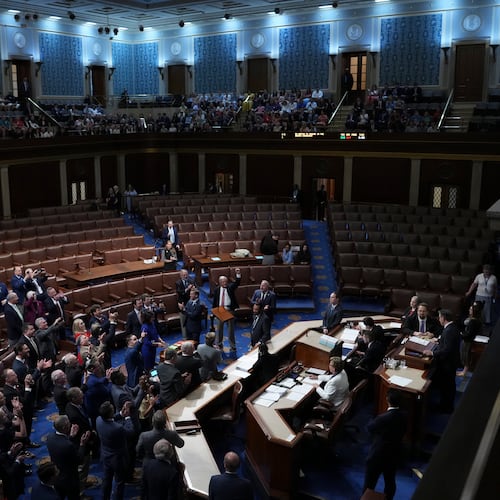Now an attorney in Atlanta, I returned to my native Pakistan recently after a 17-year absence. (I left Pakistan the day before Osama bin Laden was killed.)
On my visit, I noticed an increase in the more extreme style of Islam that many people categorize as “militant.” As I traveled north from Islamabad to Bhurban, a Himalayan mountain resort, I couldn’t help but notice the Taliban-style dress on men and burqas on many of the women walking by. It crossed my mind on more than one occasion that there could be al-Qaida operatives in that region. It also crossed my mind that bin Laden could actually be in Pakistan and authorities would not know.
That frightening thought only crossed my mind once I started my three-hour trip north of Islamabad. Elsewhere, in the large cities of Lahore and Islamabad, I could not help but be excited and pleased to see improvements in infrastructure and modernization of many public works compared to when I had last been to Pakistan 17 years ago. I saw evidence of a growing middle class, and I spoke to many people who embrace a more liberal mind-set and who are excited about a growing economy and more opportunities for the young.
In many ways, I feel Pakistan is much more modern than it was 17 years ago. Close friends of mine from Italy have even opened a swanky new Italian restaurant favored by Lahore’s upper classes.
While there I got to visit with my Italian friend. He felt perfectly safe in his upscale home in an area of Lahore called Gulberg. I did notice, however, that most westernized establishments, as well as upscale stores and homes, benefited from armed guards who carried military-grade weaponry — a reminder of the constant threat of violence in the country due to the U.S. military presence and the fact that Pakistan is a country essentially at war within its own borders.
Since the death of bin Laden, U.S.-Pakistan relations have become strained and discussions about whether Pakistan is a friend of the United States have dominated world media forums.
At issue is what the United States should do with respect to giving Pakistan aid. I do not think the U.S. should cut aid to Pakistan. U.S. aid goes to strengthening our relations with Pakistan, even as drone attacks and what Pakistanis see as a violation of their sovereignty in the bin Laden raid have inflamed anti-U.S. sentiment.
Clearly, Pakistan is wrestling over its identity. Will Pakistan be a modern democracy or will it become a nonfriendly extremist nation?
Cutting aid to Pakistan and further straining our relations will make Pakistan the latter in my opinion. The U.S. cannot afford to let a growing contingent of young, educated and liberal-minded people fall prey to militants. The United States has an interest in working with companies like DAI, an American private development consulting firm with offices in Pakistan, to strengthen civilian authority and the rule of law. Supporting missions to build transparency and reduce corruption in the government is essential as well.
While it is clear Pakistan is internally divided, it bothers me when people say that Pakistan is categorically hostile to U.S. interests. Let us give credit where credit is due. Pakistan was the first Muslim country to allow the United States to fly over its air space after 9/11, even before Saudi Arabia. The U.S. has relied on Pakistan as our main artery of military supplies to Afghanistan. Pakistan, while asking the U.S. to review its policy on drone attacks, has used its own resources and military to assist the U.S. in its war on terror. Many Pakistanis feel that Pakistan is essentially occupied by the U.S. because of its repeated use of drone attacks that have killed many innocent Pakistani civilians.
Clearly, someone in Pakistan knew that bin Laden was there. He lived there and had protection from somewhere. But on a recent trip to Pakistan, Secretary of State Hillary Clinton indicated there is no evidence that senior government officials aided him or knew of his presence.
Based on my experience, Pakistan has very strong anti-U.S. elements in power as well as very powerful pro-U.S. forces, as evidenced by its support of the U.S. military. That’s why I say Pakistan is a country wrestling between two identities. Turning our back on Pakistan is the wrong course. We will lose the fight for Pakistani hearts and minds, and that is dangerous for everyone, except the militants.
Amna Shirazi, an immigration litigator, is a Pakistani American living in Atlanta.
About the Author
Keep Reading
The Latest
Featured


